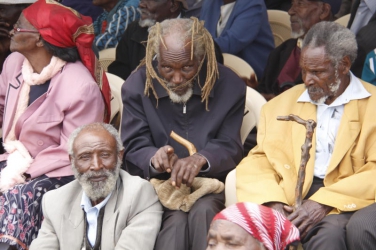×
The Standard e-Paper
Home To Bold Columnists

When I spoke at the Jamhuri Day celebrations in Nyeri Town a week ago, I put across a challenge to my fellow county citizens and indeed to all countrymen of goodwill. Fifty-three years of Independence is long enough time for us to put up a memorial for Mau Mau in the county the movement is closely identified with: Nyeri.
Mau Mau is intimately intertwined with the freedom struggle in Kenya and the fighters deserve the honour of a commemorative monument that will immortalise their sacrifice for all time.